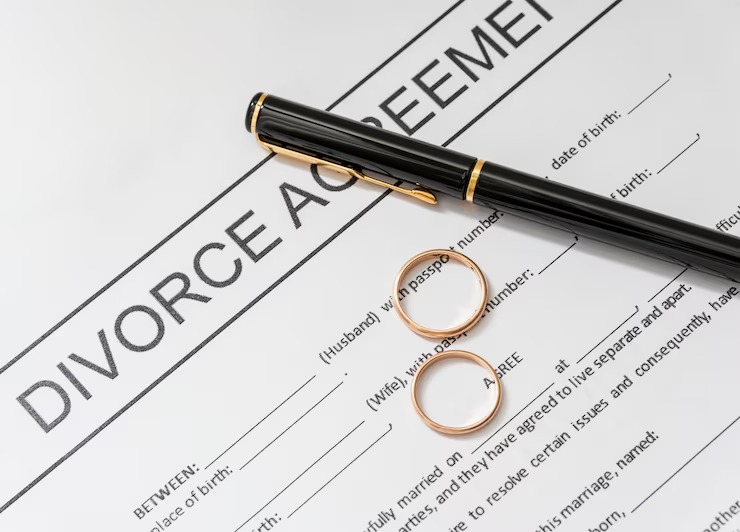Introduction
Divorce is a challenging time for any couple. From emotional turmoil to legal complexities, it often involves more than just signing papers. When the stakes are high, a private investigator can become an indispensable ally, capable of uncovering critical information that can shape the final settlement.
This article explores the role of a divorce private investigator and how they can assist in divorce cases.
Understanding Divorce Investigations
Divorce investigations, a subfield of private investigation, are specifically tailored to aid individuals in gathering evidence and information related to their divorce cases. A private investigator for divorce can help to substantiate claims made during the divorce proceedings, providing concrete proof that can tilt the case in favor of their client.
Here is what the process usually looks like:

- Divorce investigations typically begin with an initial consultation.
- During the consultation, the private investigator and the client discuss the circumstances and goals of the investigation.
- This initial meeting is critical in defining the scope of the investigation.
- The meeting also establishes the plan of action for the investigation.
- Following the consultation, the private investigator initiates the investigation to find evidence to support their client’s claims.
- Techniques utilized during the investigation can include:
- Surveillance.
- Asset searches.
- Background checks.
- Social media investigations.
- Other investigation methods as required.
How a Private Investigator Assists in Divorce Cases
With allegations flying back and forth, divorce cases often turn contentious. Some common scenarios include suspicion of infidelity, concerns over child custody, and disputes over asset distribution.
Here’s how a private investigator can help bring clarity and order to these circumstances:
Gathering Evidence of Infidelity or Marital Misconduct
If one spouse suspects the other of infidelity, private investigators can substantiate or dispel these suspicions. Such concrete evidence can significantly influence decisions regarding alimony or even child custody.
Uncovering Hidden Assets
In many divorce cases, a spouse may attempt to hide assets to prevent them from being included in the settlement. A divorce private investigator can help to uncover hidden assets like bank accounts, properties, and investments, ensuring a fair division.
For instance, in uncovering hidden assets, private investigators might employ forensic accounting techniques, scrutinize public records, or explore digital trails in the spouse’s online activity. When gathering evidence of infidelity, they can use advanced surveillance techniques and technologies, taking care to gather evidence legally and ethically to ensure it’s admissible in court.
Verifying Income and Employment
Occasionally, spouses underreport income or misrepresent their employment status to minimize alimony or child support payments. Private investigators can scrutinize these claims, promoting transparency and fairness in the settlement.
Child Custody and Visitation Investigations
Child custody is often a major point of contention in divorce cases. Private investigators can document a parent’s behavior, living conditions, and other factors to provide a clear view of the child’s welfare.
Substance Abuse Investigation
If one spouse suspects the other of substance abuse, a private investigator can gather evidence to back these claims. This evidence can be pivotal in child custody decisions, helping ensure the child’s safety.
In each of these scenarios, the role of a private investigator is pivotal, their ability to uncover the truth greatly influences the outcome of divorce cases, leading to a fair and just resolution.
The growing trend of hiring private investigators for divorce cases highlights their pivotal role in modern divorce proceedings. Their expertise in unearthing undisclosed details can significantly shape the case’s outcome, making them a significant asset in such situations.
The Legal Aspects of Hiring a Private Investigator in Divorce Cases
Understanding the legal implications of hiring a private investigator for a divorce case is crucial. While a private investigator operates within the law, some methods can infringe on a person’s privacy rights, and illegally obtained evidence might not be admissible in court. Therefore, it’s essential to hire a PI who is knowledgeable about local and federal privacy laws and conducts their investigation within legal boundaries.
Key Takeaways
Going through a divorce is complex and emotionally challenging, with numerous factors at stake – from assets to child custody. In these intricate scenarios, a private investigator can play a pivotal role, helping to uncover hidden assets, verify income, or provide evidence of marital misconduct. Given the escalating complexity of divorce cases, the role of a divorce private investigator is likely to grow even more indispensable.
Hiring a PI can also provide peace of mind during this turbulent period. Knowing that a skilled professional is on your side, meticulously gathering all the necessary information, can mitigate some stress associated with divorce. A PI can also serve as a neutral third party, offering an unbiased perspective invaluable in emotionally charged situations.
Remember, the goal of hiring a PI isn’t about ‘winning’ the divorce case by tarnishing the other party; it’s about fostering transparency. The aim is to ensure the truth emerges so the court can make informed decisions that respect the rights and interests of all involved parties, especially when children’s well-being is at stake.
If you’re facing a divorce and could use the professional assistance of a private investigator, don’t hesitate to reach out. Contact us today to schedule a confidential consultation. Let’s bring clarity and fairness to your situation.
FAQs: Private Investigators in Divorce Cases
1. How can a private investigator assist in divorce cases?
Private investigators gather evidence such as surveillance footage, financial records, and witness statements to support claims of infidelity, hidden assets, or unfit parenting. This information can influence alimony, asset division, and custody decisions.
2. What methods do private investigators use in divorce investigations?
They employ surveillance, background checks, financial audits, and social media analysis to uncover pertinent information. Techniques are tailored to the specific concerns of the client, ensuring legal compliance and ethical standards.
3. Can evidence from a private investigator be used in court?
Yes, if obtained legally and ethically. Investigators ensure that their methods comply with privacy laws and ethical standards, making their findings credible and admissible in court proceedings.
4. When should a private investigator be hired during a divorce?
Engage a private investigator when there are suspicions of infidelity, hidden assets, or concerns about child custody. Early involvement can provide crucial evidence to support your case and inform legal strategies.
5. How do private investigators assist in child custody disputes?
They gather evidence related to a parent’s behavior, living conditions, and ability to care for the children. This information can be crucial in determining custody arrangements and visitation rights.






